Home > Insight > Technology
ERP For Retail Industry: Why Odoo is Essential
5 minutes read
Audio description available
November 7, 2024
Balancing stock, managing customers, and navigating online sales channels can overwhelm even the most experienced retailers. As an Odoo CRM + ERP customization expert, BHSoft understands these challenges and helps businesses overcome them with tailored Odoo solutions. Odoo ERP for the retail industry addresses these issues by seamlessly integrating core functionalities—from inventory and customer management to sales tracking and reporting. In this blog, we explore the transformative power of ERP adoption with Odoo and how it can revolutionize your retail operations.
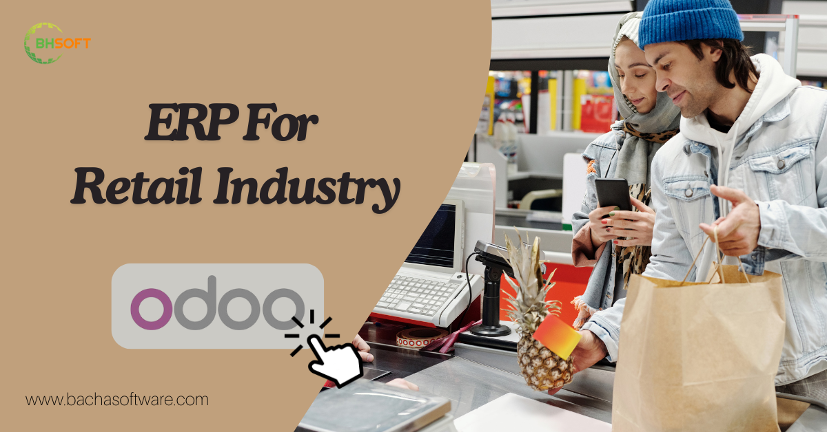
The Necessity of ERP for Retail Industry
The retail sector has experienced a dynamic shift with the implementation of robust Enterprise Resource Planning (ERP) systems. The global ERP for retailers market size was USD 10.34 billion in 2023, and the market is projected to touch USD 28.58 billion by 2032, at a CAGR of 11.95% during the forecast period. This growth underscores the importance of ERP in providing retailers the agility needed to thrive amid changing market conditions.
Why are traditional retail operations moving toward ERP solutions?
1. Cohesion Amid Complexity: Modern retail demands a cohesive approach; disparate systems for different business areas are no longer viable. Customers expect seamless omnichannel experiences, necessitating the tracking of interactions and management of inventory across multiple touchpoints.
2. Personalization Needs: Today’s retail landscape demands a deeper understanding of customers, going beyond generic offerings. ERP systems aggregate customer data from various sources to provide a comprehensive view. It enables personalized loyalty plans, product recommendations, and targeted marketing efforts.
3. Broader Benefits Beyond Efficiency: ERP for retail industry offer advantages that extend beyond operational efficiency and competitiveness. They provide insights and support that are crucial for navigating the complexities of modern retail.
Benefits of ERP for Retail Business
As previously stated, traditional retail operations are shifting to ERP solutions because of benefits beyond the efficiency of ERP for retail industry. In this section, we discuss in detail these benefits.
One of the primary benefits of ERP for retail industry is the facilitation of seamless omnichannel selling. Today’s customers expect consistent availability and fulfillment across all shopping channels—whether online, mobile, or in-store. ERP solutions centralize inventory data, providing real-time visibility and simplifying order management processes. This ensures efficient fulfillment and simplifies returns, enhancing the overall customer experience.
Optimized inventory control is another key benefit offered by ERP systems. With real-time tracking of items from suppliers to the retail business, these systems enhance visibility and risk management throughout the supply chain. This improved oversight leads to reduced carrying costs and better order fulfillment, giving retailers a significant competitive edge in a crowded market.
The integration of ERP for retail industry with Point of Sale (POS) systems also streamlines transactions, making the checkout process faster and more efficient. By capturing valuable customer data during sales, retailers can enhance customer experiences and drive increased sales revenue, ultimately contributing to business growth.
Additionally, ERP systems provide streamlined processes for employee management. By automating tasks such as payroll, scheduling, and performance tracking, employees can concentrate on more critical activities, leading to improved overall efficiency within the organization.
Finally, enhanced operations are a significant benefit of adopting ERP systems. With real-time data access across various departments, retailers can make informed decisions that optimize resources and marketing strategies. This access to information enables proactive problem-solving and fosters a culture of continuous improvement within retail operations.
You may be interested in: ERP Software Development: A Step-By-Step Guide.
Modern Odoo Modules and Features ERP for Retail Businesses
The Odoo offers a comprehensive solution to streamline retail operations. From inventory and sales to finance and human resources, Odoo’s powerful modules help retailers boost efficiency, accuracy, and customer satisfaction.
1. Purchase Management
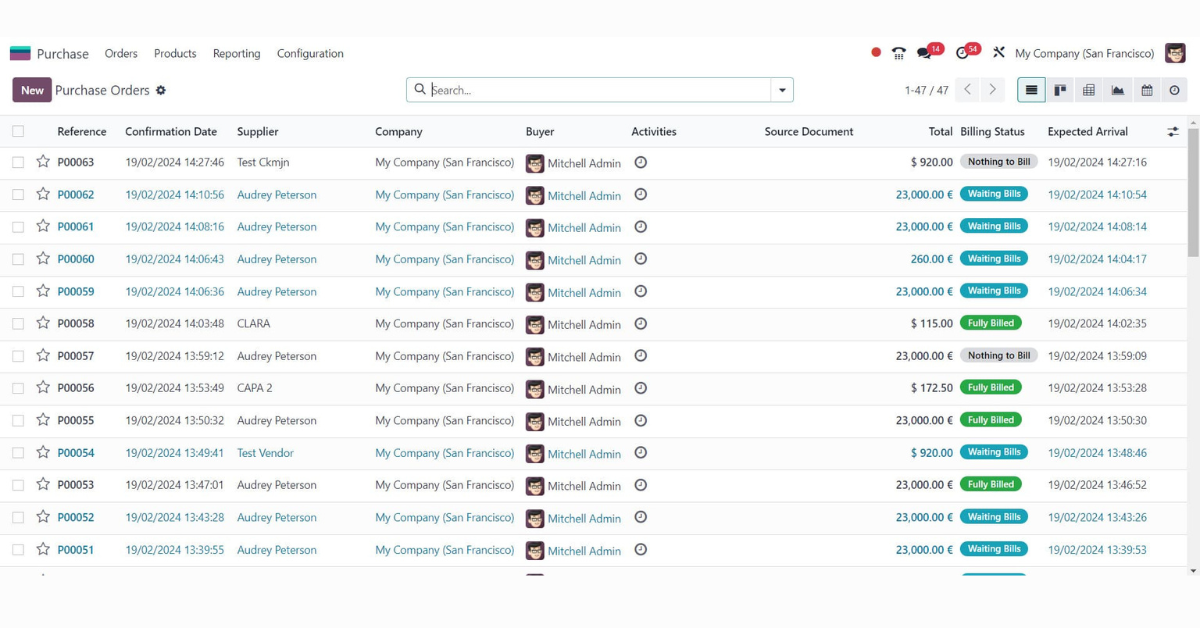
Efficient purchasing is crucial for retail success. Odoo's purchase management feature automates the restocking process based on real-time inventory levels. Whether you work with one vendor or multiple, Odoo allows you to categorize vendors and choose the best options for your needs. Additionally, the system streamlines the generation and payment of vendor bills.
Notable Features:
- Streamlined Ordering: Includes purchase requests, vendor quotation management, and purchase orders.
- Inventory Management: Tracks minimum order quantities (MOQs), landed costs, and serial/lot numbers.
- Supplier Management: Facilitates vendor performance tracking, multi-currency transactions, and automated payments.
2. Inventory & Stock Management
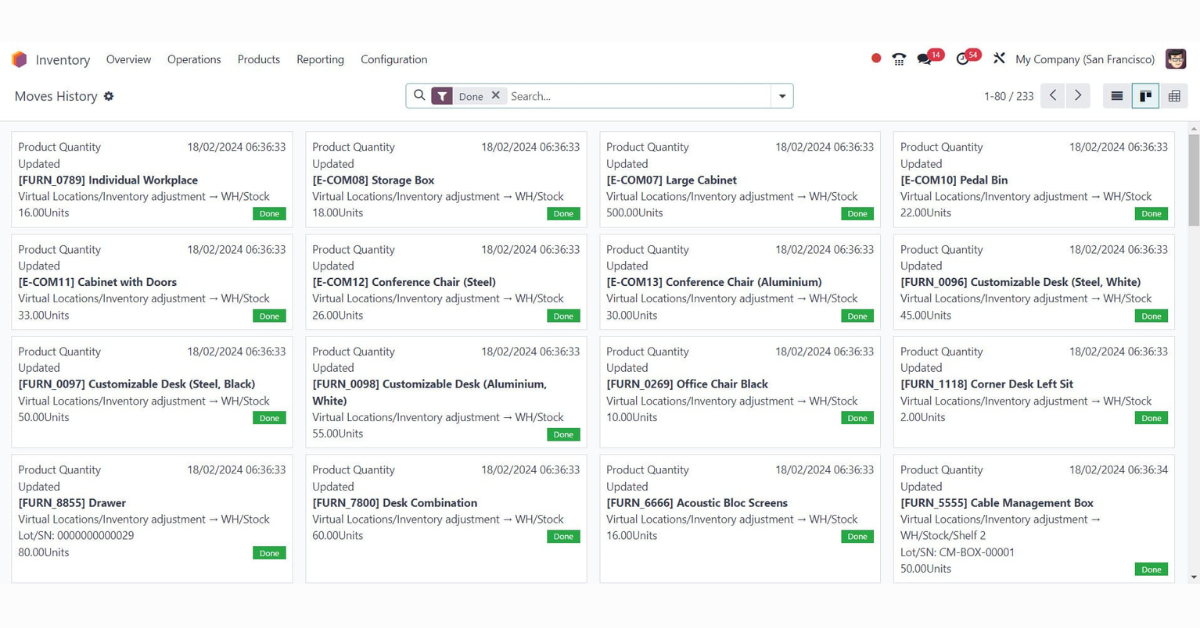
Keeping track of inventory is vital for any retail operation. Odoo's inventory management module provides the tools needed to manage product transfers, storage locations, and stock efficiently.
Notable Features:
- Real-time Visibility and Control: Offers comprehensive tracking with barcode and serial number integration.
- Automated Workflows and Optimization: Features smart reordering and optimal stock distribution.
- Flexible Management and Reporting: Supports multi-location management, multi-unit measures, and quality control.
3. Sales Management & Point of Sale (POS)
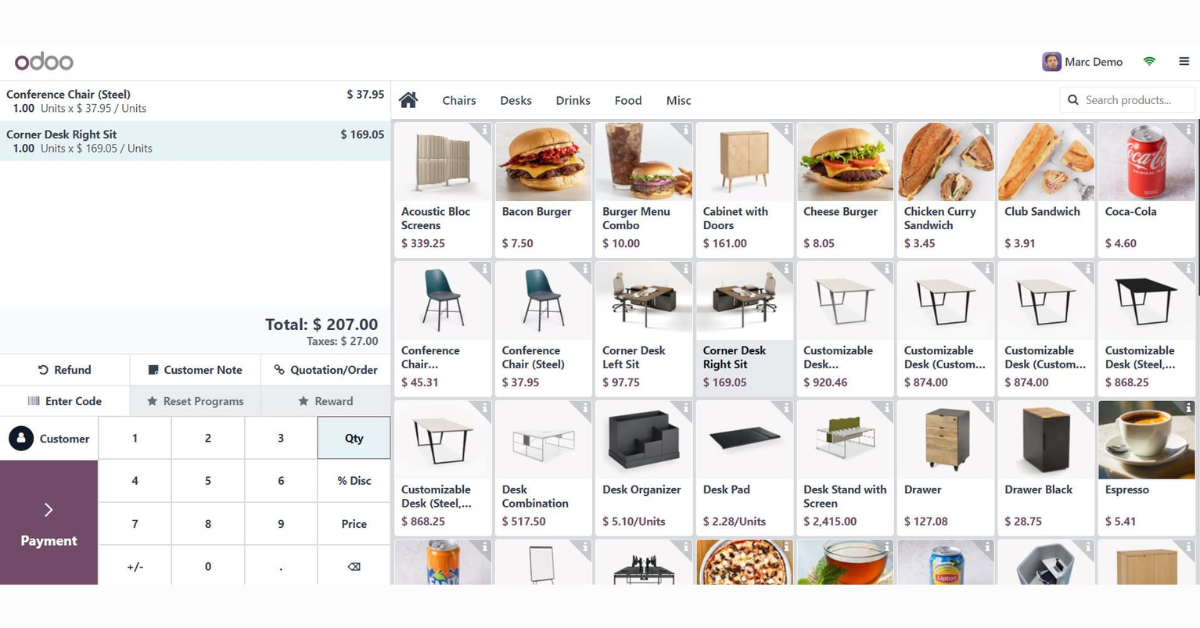
Odoo's POS module ensures effective retail operations by integrating sales and inventory management. The system supports smart touchscreen setups, improving efficiency at checkout and enabling cashiers to log in/out using biometric devices.
Notable Features:
- Sales Management: Includes quotation management, order management, invoicing, and advanced reporting.
- Point of Sale (POS): Features a touchscreen interface, offline capabilities, multiple payment options, and comprehensive customer management.
4. Finance Management
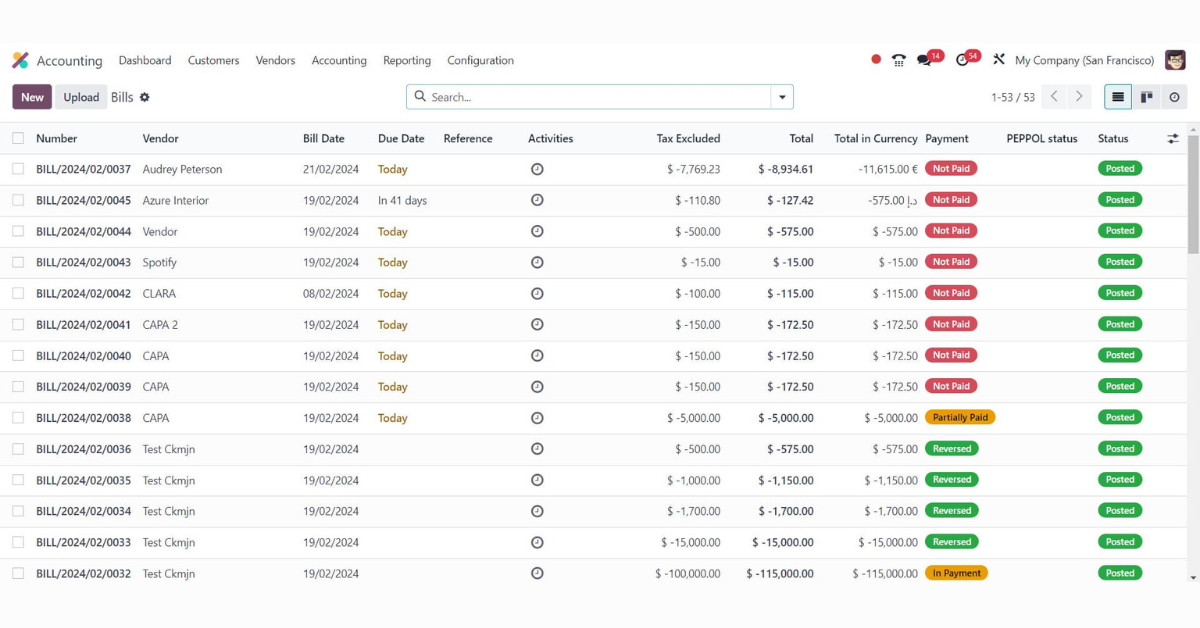
Financial management is critical in retail, and Odoo's accounting module simplifies this by automating sales invoices and purchase bills. It offers complete oversight of retail operations, including down payments and asset management.
Notable Features:
- Streamlined Accounting and Reconciliation: Supports multi-currency transactions and automated workflows.
- Comprehensive Invoicing and Billing: Includes flexible invoicing templates and online payment options.
- Detailed Reporting and Analytics: Features real-time dashboards and customizable reports.
- Enhanced Cash Flow Management: Automates payment reminders and supports forecasting and budgeting tools.
- Tax Compliance and Management: Automates tax calculations and integrates with tax authorities.
5. Production Management
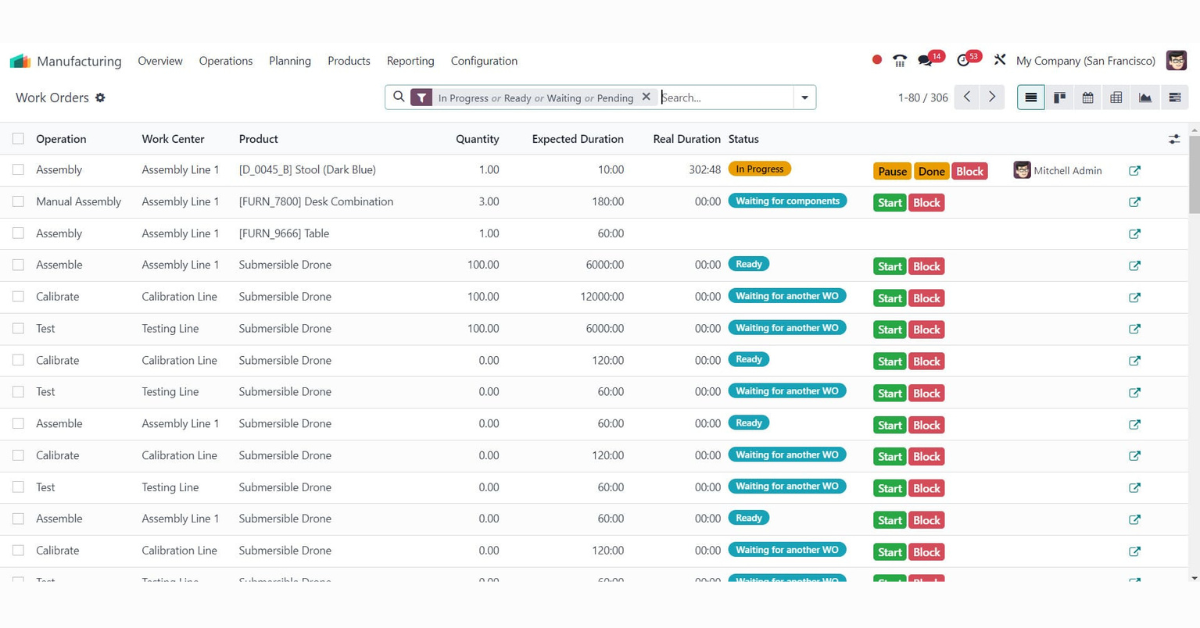
Odoo's manufacturing module includes essential features for effective production management, from tracking job progress to quality control. It helps optimize inventory throughout the production process, minimizing waste and ensuring timely availability of finished goods.
Notable Features:
- Streamlined Production Planning and Scheduling: Manages bills of materials (BOMs) and work orders.
- Efficient Production Execution and Control: Offers shop floor management and costing analysis.
- Enhanced Visibility and Traceability: Provides real-time tracking and traceability.
6. Human Resources Management
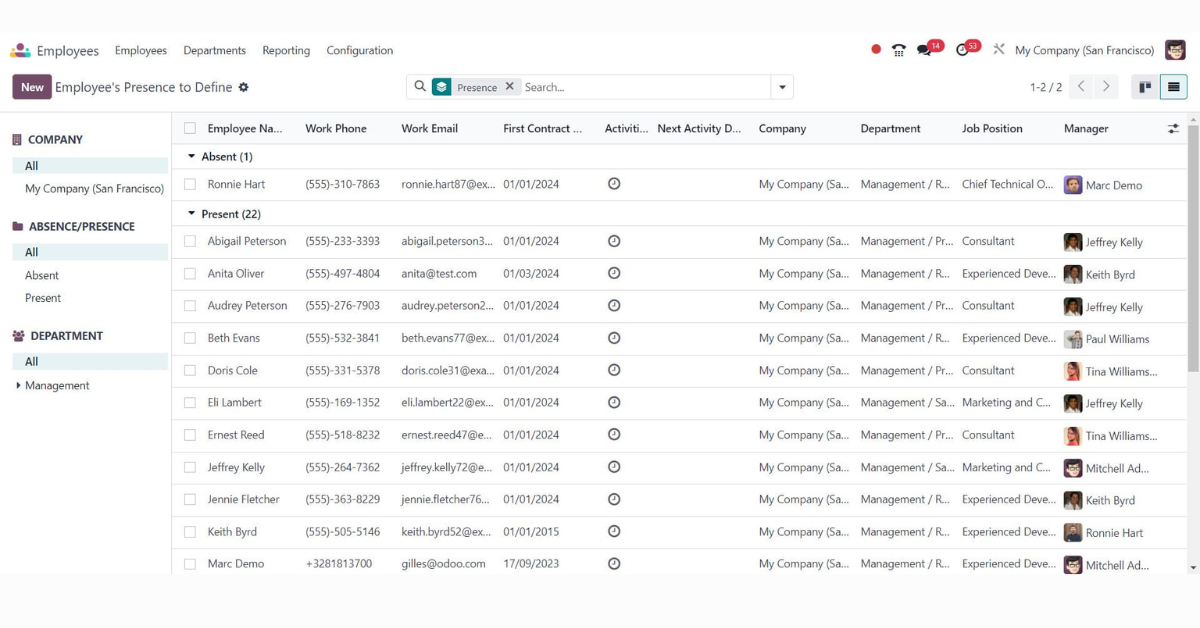
Odoo's HR module equips businesses with tools for effective employee management, covering recruitment, onboarding, payroll processing, and performance management. Automation reduces errors and fosters a supportive work environment.
Notable Features:
- Streamlined Recruitment and Onboarding: Manages candidate applications and onboarding workflows.
- Efficient Payroll Management: Supports multi-country payroll and integrates with accounting software.
- Performance Management and Development: Facilitates goal tracking and performance reviews.
- Enhanced Communication and Engagement: Includes employee surveys and attendance tracking.
7. Marketing & E-commerce
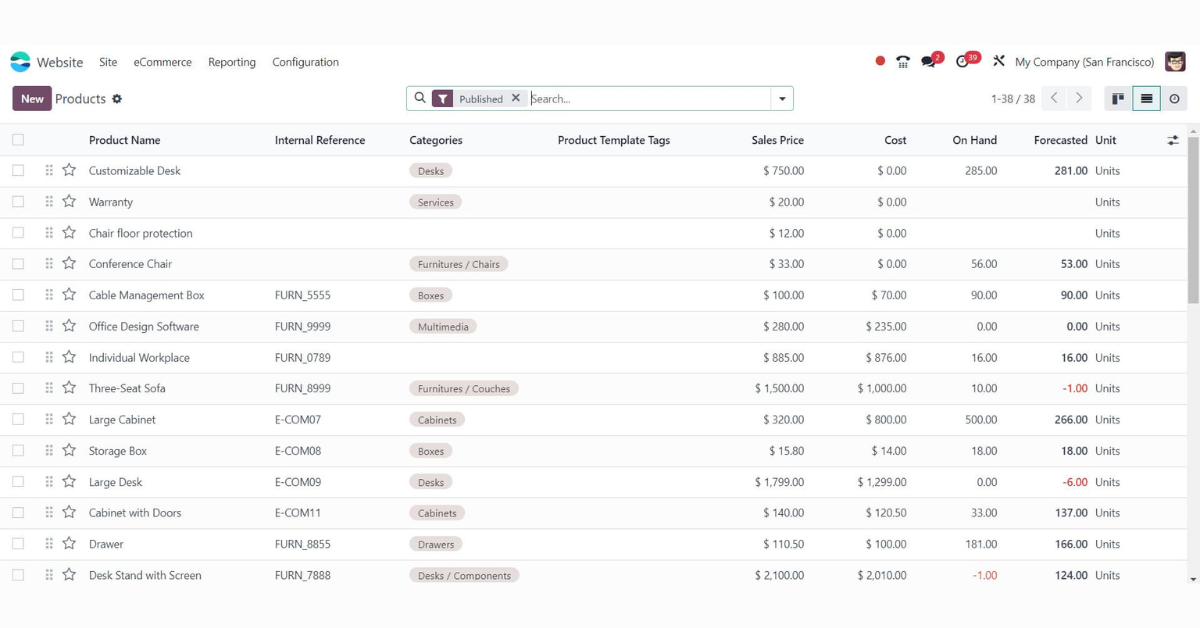
Odoo's marketing and e-commerce solutions help retailers attract and convert customers through targeted campaigns and user-friendly online stores. Centralizing customer data enhances advertising efforts and loyalty programs.
Notable Features:
- Marketing Automation: Includes targeted email marketing and landing page creation.
- E-commerce Functionality: Features a website builder, product management, and multiple payment gateways.
- Customer Relationship Management (CRM): Centralizes customer data for effective segmentation and targeting.
Conclusion
In sum, Odoo ERP for retail industry is an exceptional solution that enables you to manage all aspects of your business from a single source of truth. By integrating various modules—sales, accounting, CRM, inventory, and more—you can significantly streamline your operations and enhance your retail strategy.
If you need expert assistance to move toward ERP solutions, reach out to BHSoft. We have worked with Odoo ERP for retail industry for over ten years as a top software development company. Our dedicated team is ready to help you leverage Odoo to transform your operations and drive productivity. Together, we can achieve optimal efficiency and growth.

